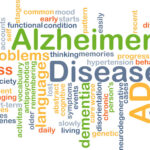
A sense of purpose and meaning is fundamental to our health and well-being. Interestingly, it appears that it doesn’t really matter what your life purpose is, as long as you have one. For example, someone’s life purpose might be to help a charitable organization or to be a loving and supportive person for their loved ones. For another, it might be to travel or to build custom furniture. The idea is that the life purpose should reflect personal vision, values, beliefs, and goals.







